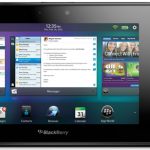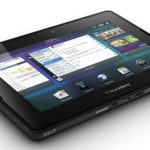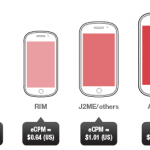BlackBerry 10 kills scheduling app Tungle, what can you use in its place?

Research in Motion-owned scheduling app Tungle is shutting down for good on December 3. But where Tungle leaves the scene, alternatives do exist.
Tungle was an app that allowed users to create calendar events that were compatible with all of the most popular calendar apps (.CSV and .ICS-based calendars like Microsoft Outlook, Windows Live, Google Calendar, Yahoo!, Apple iCal, Entourage, Lotus Notes, BlackBerry, Plancast, TripIt, Facebook Events.) The idea is that you can schedule a single event that populates any calendar without the worry of compatibility issues.
So long robot, I'm ditching Android

Dear Google, that's it! I've had enough! Enough of the random lockups and reboots. Enough of the buggy browser and convoluted multitasking. Enough of Android!
Google, I've given you a fair shot. I drank the Kool-Aid. I joined the Android Army. And I wore my green robot tattoo thingy with pride. However, I could never shake the feeling that I've been running with the wrong crowd.
Android and iOS shut out Windows Phone, BlackBerry

For the three months ending in July, Android and iOS combined US smartphone subscriber share reached 85.6 percent, according to comScore. That's 3.4 percentage points higher than April. Meanwhile, Research in Motion and Microsoft mobile platforms receded to 9.5 percent and 3.6 percent share from 11.6 percent and 4 percent, respectively. While comScore combines defunct Windows Mobile and Windows Phone, we henceforth refer to both using the latter name.
The smartphone market clearly consolidates around Android and iOS, leaving even less share for Windows Phone or BlackBerry. Android and iOS will soon face the new batch of Windows Phone 8 handsets, including the Nokia Lumia 920 announced today. However, as it stands now, Microsoft's mobile operating system has plenty of ground to cover to even count as a worthy adversary to the two major platforms.
Samsung is dateless and desperate on prom night

A soap opera. That's how I would describe this week's revelation that Samsung is cozying up to Microsoft and the forthcoming Windows Phone 8. Still stinging from its recent court loss to Apple, the South Korean juggernaut appears to be hedging its Android bets by embracing one of the two remaining underdogs in the mobile OS race (the other being Research in Motion).
No matter how you slice it, Samsung's executives are running scared. And who can blame them? Apple will do whatever it takes to crush the little green man from Mountain View (it's a Jobsian legacy thing). And the fact that its chief hardware rival is getting squeezed in the process is simply gravy.
4G LTE BlackBerry PlayBook -- only for die-hard RIM fans?

Even if I may not come across as a Research in Motion fan, I actually like the Canadian smartphone manufacturer more than you'd think. RIM is the underdog in the smartphone race and after I wrote the article on the new 4G LTE BlackBerry PlayBook I thought to myself "yeah, this is nice; I'd actually have one over a Nexus 7". The specs pointed to a very capable 7-inch tablet that is better than typical, run-of-the-mill, BlackBerry PlayBook in almost every single way. What's not to love about a new, strong entry on the market? Well…
I didn't expect to like the tablet, since I didn't expect it to be launched in the first place, given the financial context being most unfavorable in a long time for RIM. The 4G LTE BlackBerry PlayBook is a miracle in its own way, being released at a time when RIM shares plummeted harder than a Tic-Tac falling from a skyscraper. Then I saw the price: CAD549.95, in Canada, at Bell, Rogers and Telus; I'm still left wondering: "What are they thinking?" That's about $554 for the folks south of the Canadian border. Since both the Canadian and United States BlackBerry shops have the same prices for the PlayBook, it's fair to assume the 4G LTE BlackBerry Playbook will too.
4G LTE BlackBerry PlayBook makes iOS and Android devices feel about as sophisticated as my daughter’s old 'Speak & Spell'

I love underdogs. Whether it’s David vs. Goliath, Rocky vs. Apollo Creed or Microsoft (circa 1992) vs. IBM, I enjoy rooting for the plucky upstart. Which is why I find the resurgence of interest surrounding Research in Motion's beleaguered PlayBook tablet all the more satisfying: Here is a product that stumbled out of the gate and was left for dead, only to slowly crawl its way back into the ring of respectability through a combination of raw talent and sheer force of will.
Make no mistake: The PlayBook was an impressive device when it first shipped in April, 2011. Bristling with class-leading technology, RIM’s first foray into the tablet market should have been an instant hit. However, the software half of RIM’s winning formula still wasn’t fully baked, with some glaring omissions (email, calendar) and few third party apps to speak of. And, in a truly ironic twist, many early critics actually panned the device for its smallish 7-inch form factor.
Good news for RIM fans: RIM unveils the 4G LTE BlackBerry Playbook

Suddenly RIM is in the news again, and this time it’s not about financial troubles or product delays to 2013.
Instead, the Canadian manufacturer announced the introduction of its new 4G LTE BlackBerry Playbook, along with the specifications of the 4G LTE 7-inch tablet aimed to bring stability to a company that’s facing difficult financial problems. When’s it coming and where?
Research in Motion isn't in a 'death spiral'

The conjured term "death spiral" has been so overused in discussions about Blackberry-maker Research in Motion that one must ask: Are the tech pundits crying wolf too often, too soon? Do a targeted search for "Research in Motion death" on Google and you will easily see that this rush to judgement started all the way back in early 2010. Like the doomsday naysayers of yesteryear, RIM's date of decease has anything but solidified (to some pundits' shock.)
The short-term future for RIM is a rocky road indeed. With its face-saving Blackberry 10 OS release being pushed back another quarter into early 2013, the smartphone giant has little glitz to match the other big boys temporarily. Samsung's instant-hit -- aka the Galaxy S3 -- has already touched down. Google's got its latest iteration of Android, Jelly Bean, cooking for its flagship devices including the Nexus and the S3. And the iPhone 5 rumor mill just can't take a week off as of late.
iOS is more profitable ad platform than Android, but for how long?

Ad network reports about mobile platforms are a dime a dozen. Many boast about iOS presence and the oodles of eyeballs. Opera has joined in, releasing their first State of Mobile Advertising report, which, for the second quarter of 2012, focuses on mobile advertising revenues. The browser maker puts all the big players -- Android, iOS, BlackBerry, Symbian and Windows Phone -- under the microscope.
Like other ad network reports, Opera's puts iOS at the top of the revenue food chain, with an average eCPM (effective cost per thousand impressions) of $2.85. iOS' main rival, Android, follows, with average eCPM of $2.10. On the tablets, iOS is even more profitable than on the smartphone market, with a $3.96 eCPM.
Microsoft should buy RIM as soon as possible

Research in Motion is in trouble. Exactly how much trouble isn’t really clear right now, but things are looking bad.. Thorsten Heins, the current CEO, is keeping a positive outlook. He stated this week, in an interview with a Canadian radio station: "There’s nothing wrong with the company right now".
Pretty much everyone disagrees with this statement, including the stock market. At the time of writing the share price stands at under $8. This time last year it was $30. Go back to 2008 and the company was trading at $150 a share. RIM also recently announced 5,000 redundancies and losses of $518 million. Heins might say one thing publicly, but in private you can bet he is a worried man.
RIM Death Watch: Revenues plummet, jobs cut, BB10 delayed until 2013

The news for Research in Motion went from bad to worse after the close of the market Thursday, as the company reported a sharp 33 percent drop in revenues quarter-to-quarter. Worse yet, its next-generation BlackBerry 10 operating system is postponed until the first quarter of next year, meaning any major new device releases are also delayed.
As part of its earnings announcement, RIM is also giving some bad news to its employees: layoffs for 5,000, or about a third of its workforce. Looks like it's time to start the RIM death watch once again.
RIM is a far more formidable player than either Google or Apple

I like it when I’m right. Whether it’s dispelling the myths surrounding the Windows 7 kernel (I was right), or bursting the bubble of the VDI-everywhere zealots (right again), I enjoy having my predictions come true.
I’m also an operating system technology purist. I believe that a strong OS foundation is what determines whether or not a given platform will succeed over the long haul. This is why I’m convinced that Microsoft will ultimately dominate the enterprise mobile computing space (Windows Phone 8 is based on Windows NT, an OS for which I have tremendous respect). And it’s also why I believe they eventually will share this space not with Apple or Google, but rather the company that everyone likes to write-off: Research in Motion.
RIM Death Watch: Celestica winds down BlackBerry manufacturing

The reality is no one is buying BlackBerries anymore it seems, and Research in Motion may finally be getting the hint. Manufacturing partner Celestica said Monday that it will wind down production of the devices in its factories over the next three to six months, at a cost of $35 million. Don't take it as the end of the BlackBerry just yet: Celestica is one of several partners that manufacture RIM's devices. So the death knell isn't ringing (yet).
RIM is reassessing its entire supply chain, and as a result of its shrinking market share will likely wind down some of its manufacturing capacity. The company has admitted that it's losing its clout in the marketplace and will likely result in an operating loss for this current quarter.
Nokia layoffs = Benefit for US, Sweden. Problem?

Last year, when Microsoft announced it was partnering with Nokia in Windows Phone development, it was widely expected to result in significant staff cutbacks in Nokia's research and development department. In fact, it was part of the agreement. Both Nokia and Microsoft said there would be an R&D handoff. Finland's Minister for Economic Affairs, Mauri Pekkarinen went so far as to say it would result in the biggest structural change that Finland has ever seen in the new technology sector.
Yesterday, Nokia CEO Steven Elop announced major R&D cutbacks...these 10,000 layoffs should have surprised no one.
BlackBerry 10 breathes new life into RIM

Playbook, like so much about Research in Motion these days, is a crisis of faith. Do you believe RIM will finally get it right, or move away from BlackBerry? Months ago when the Playbook 2.0 update hit and leaks finally outed the keyboard/case thing and Blackberry London hardware, I believed in the tablet, BlackBerry 10 and RIM having a future. Or at least one last chance.
This week's BlackBerry World 2012 has renewed my confidence in RIM, and I would even say that they now have a very good chance to bounce back.
© 1998-2025 BetaNews, Inc. All Rights Reserved. About Us - Privacy Policy - Cookie Policy - Sitemap.